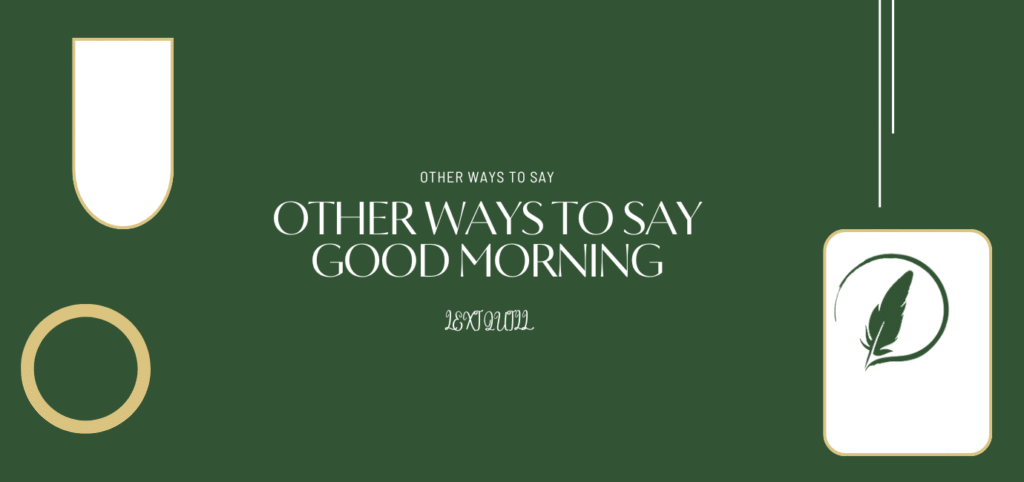When composing business emails, one of the most typical and formal phrases used is “Please be advised.” It’s often included when providing serious news, informing someone of a change, or offering important updates. While this phrase is professional and widely accepted, it can sometimes feel too formal, impersonal, or even outdated in modern workplace communication. If you’d like to strike a friendlier, more approachable tone while still remaining courteous and professional, there are many effective alternatives you can use instead.
Why Use Alternatives?
The phrase “Please be advised” may convey a sense of distance or cold formality. In today’s work environment, where email tone matters greatly, finding the right balance between professionalism and warmth is key. Alternatives can make your communication sound less robotic and more engaging. Depending on your relationship with the recipient and the nature of the message, using a less formal phrase can enhance clarity, build rapport, and maintain a professional yet approachable tone. Choosing the appropriate alternative also shows consideration for how your message might be received and interpreted.
1. Kindly Note
“Kindly note” is a courteous and professional phrase commonly used to draw attention to important details without sounding harsh or commanding. It’s especially effective in internal business communications and formal announcements.
Example: Kindly note that our office will be closed on Friday due to a public holiday.
This alternative maintains a respectful tone while ensuring the recipient understands the importance of the information.
2. For Your Information
“For your information” is a clear and direct phrase that works well when you’re simply passing along details without requiring a response or immediate action. It’s widely accepted in business contexts and can be used to share updates, reminders, or general information.
Example: For your information, the deadline for submitting reports has been extended to next Monday.
This phrase keeps things concise and ensures that the message is informational rather than directive.
3. Just a Heads-Up
“Just a heads-up” is an informal, friendly phrase that makes your email sound conversational while still alerting the recipient to something important. It’s great for internal team messages or less formal exchanges with colleagues.
Example: Just a heads-up, the system will be undergoing maintenance this weekend.
This phrase helps soften the tone and creates a collaborative atmosphere.
4. Please Note
“Please note” is a classic and professional phrase that clearly communicates important information. It’s more modern than “please be advised” and widely used across various industries.
Example: Please note that the meeting location has changed to Conference Room B.
It’s ideal for emphasizing details in a straightforward and unambiguous way.
5. This is to Inform You
“This is to inform you” is a formal, standard phrase that works well in letters, official statements, and formal emails. It sets a serious tone and is suitable for structured business correspondence.
Example: This is to inform you that your application has been successfully processed.
Use this option when you want your message to maintain a high level of formality.
6. We Would Like to Bring to Your Attention
“We would like to bring to your attention” is a polite and respectful way to introduce an important issue or highlight something the recipient should focus on. It’s particularly useful in customer service or policy-related messages.
Example: We would like to bring to your attention that the company’s reimbursement policy has been updated.
This phrase suggests collaboration and invites attention without sounding too authoritative.
7. Be Aware That
“Be aware that” is a neutral and straightforward way of ensuring that your message is acknowledged. It maintains clarity while avoiding excessive formality.
Example: Be aware that all project proposals must be submitted by the end of the week.
This option works well for reminders and procedural updates.
8. Just to Let You Know
“Just to let you know” is an easygoing, friendly way to offer information without sounding too forceful. It’s appropriate for day-to-day communications among team members.
Example: Just to let you know, the client has rescheduled the call for tomorrow afternoon.
This tone keeps things casual and comfortable while still being informative.
9. I Want to Make You Aware
“I want to make you aware” adds a personal touch to your message while staying professional. It implies that the information is important and deserves the recipient’s attention.
Example: I want to make you aware that the invoice needs to be approved before processing.
This phrase is useful for communications that involve responsibility or follow-up.
10. Allow Me to Inform You
“Allow me to inform you” is a very formal and respectful phrase that can be used in official correspondence. It communicates that the sender is being courteous while delivering serious or official news.
Example: Allow me to inform you that your request for additional resources has been approved.
This is best used in high-level professional or legal communications.
Final Thoughts
Choosing the right wording in professional emails is essential to ensure your message is understood and well-received. While “Please be advised” is perfectly acceptable in many formal contexts, it’s not always the best option—especially if you want your tone to come across as friendly, approachable, and engaging. The ten alternatives listed above offer flexibility and can be used depending on your audience, relationship, and the nature of the message. By using these phrases thoughtfully, you can enhance your communication and foster a more positive and productive professional tone.








